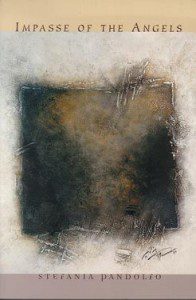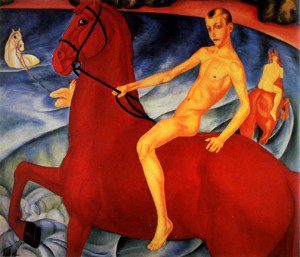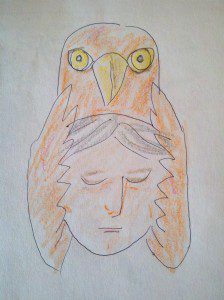 Stefania Pandolfo’s beautiful, polyphonic Impasse of the Angels: Scenes from a Moroccan Space of Memory (University of Chicago Press) evokes the landscapes – imaginal more than physical – of rural Moroccan villagers for whom dreaming and poetry are vitally important, and always interweaving.
Stefania Pandolfo’s beautiful, polyphonic Impasse of the Angels: Scenes from a Moroccan Space of Memory (University of Chicago Press) evokes the landscapes – imaginal more than physical – of rural Moroccan villagers for whom dreaming and poetry are vitally important, and always interweaving.
“Poetry is always the result of flooding”, a younger poet tells her. A real poem bursts from an emotion that is inundating, overwhelming – until it finds creative release.
The most respected poet in the area, one Sheikh Mohammed, was alien to poetry until he dreamed of a flood. The dream came at a time of personal trauma when he was close to despair. Previously a violent man of action, he had managed to blow off his right hand in a gun accident.
He dreamed the river was coming down in flood, its front like a mountain, carrying everything it encountered in its path, trees and carrion and debris. Instead of fleeing, he stood there in the dry riverbed, watching and waiting. Then he opened his mouth and swallowed the flood and everything borne along by it.
“Upon waking he recounted the dream to his mother: ‘The river in flood entered my mouth and I swallowed it.’; and she told him that he had become a poet. He who had never recited a verse or cared for poetry, he who had even ridiculed poets in his previous life, began to ‘speak’, to utter poetical ‘words.”
I am reminded of a personal dream of a flood that was a watershed in my creative life. I dreamed I was watching a tremendous wall of water rushing towards where I stood with an animal friend. Instead of fleeing, I prepared myself to catch the wave and ride it. I woke charged with creative energy. I still regard that dream – which I titled “Inundation” – as one of the most powerful creative experiences of my life, and in group visioning in my workshops I have adapted it as a portal through which others can find their own creative power.
Stefania Pandolfo demonstrates that if we plunge deep enough into the specifics of a remote culture (in this case into a world of vernacular Arab poetry unknown to most people even in the Arabic-speaking world) we find themes and processes that are part of our common humanity.

